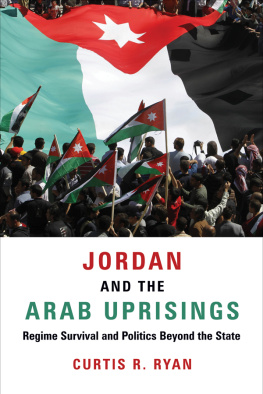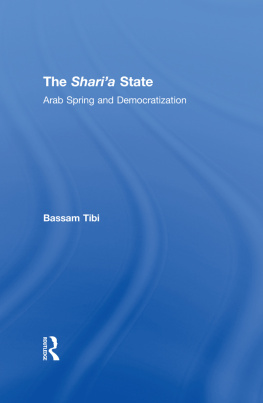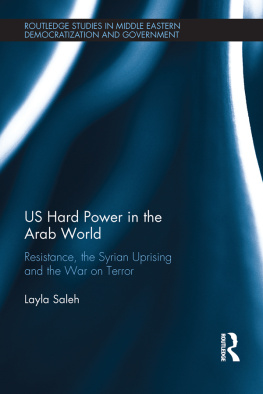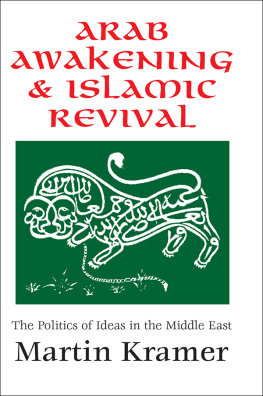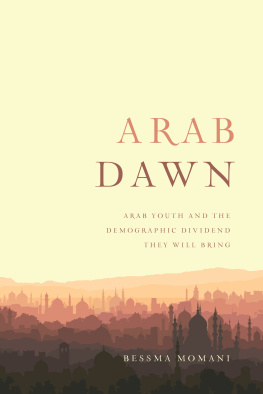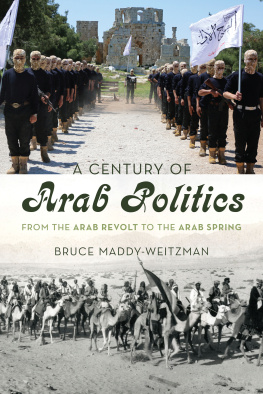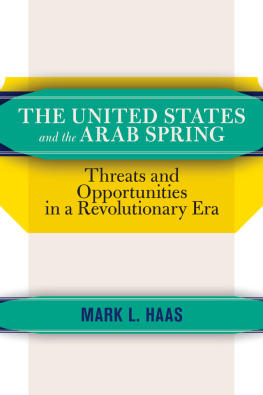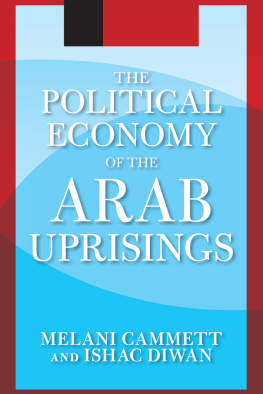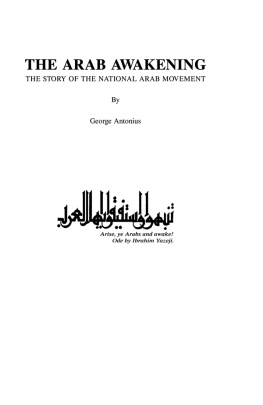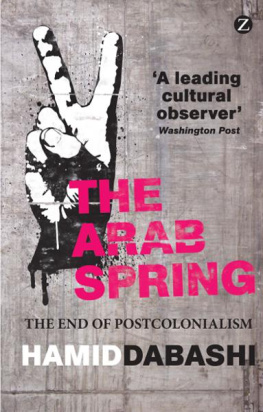The Second Arab Awakening
The Second Arab Awakening
The Second Arab Awakening And the Battle for Pluralism
MARWAN MUASHER

Copyright 2014 by Marwan Muasher.
All rights reserved.
This book may not be reproduced, in whole or in part, including illustrations, in any form (beyond that copying permitted by Sections 107 and 108 of the U.S.
Copyright Law and except by reviewers for the public press), without written permission from the publishers.
Yale University Press books may be purchased in quantity for educational, business, or promotional use. For information, please e-mail sales.press@yale.edu
(U.S. office) or sales@yaleup.co.uk (U.K. office).
Set in Minion type by Integrated Publishing Solutions.
Printed in the United States of America.
Library of Congress Cataloging-in-Publication Data
Muasher, Marwan.
The second Arab awakening : and the battle for pluralism / Marwan Muasher.
pages cm.
Includes bibliographical references and index.
ISBN 978-0-300-18639-0 (hardback)
1. Arab Spring, 2010 2. RevolutionsArab countriesHistory21st century. 3. Arab countriesPolitics and government21st century.
4. PluralismArab countries. I. Title.
JQ1850.A91M827 2014
909'.097492708312dc23 2013029236
A catalogue record for this book is available from the British Library.
This paper meets the requirements of ANSI/NISO Z39.481992
(Permanence of Paper).
10 9 8 7 6 5 4 3 2 1
To the youth of the Arab world Who revolted, not against their parents, But on their behalf.

Arise, ye Arabs, and awake!
Ode by Ibrahim Yazegi
(Reproduced from the epigraph in George Antonius book The Arab Awakening)
Contents
Note to the Reader
The extraordinary and tragic events in Egypt during the summer of 2013 took place after this book was well into production, but they should not go unremarked. As I write this, two months after President Mohamed Morsi was forcibly removed from office, and during a week in which more than nine hundred civilians were killed, protesters remain camped out in Cairo and the military rulers have declared a state of emergency. It is clear that this summer will be remembered as a historic turning point. what sort of turning point, and how events will unfold from here, no one can say.
But what has happened so far supports one of this books major arguments: that the Islamist and secular forces in the Arab world, both before and after Arab uprisings, have shown no solid commitment to pluralistic and democratic norms. Each side has denied the right of the other to operate and has often ignored the popular will.
The Islamist forces in Egypt, winners of the presidential and parliamentary elections that took place after Hosni Mubarak was deposed, pushed through a constitution that ignored the will of a large number of Egyptians. The very reason for adopting a constitution is to achieve consensus among the various forces in society, yet this was a majoritarian document that gave little heed to the opposition. Political frustrations and a deteriorating economic situation finally led millions of Egyptians to return to the street, this time demanding an end not to the secular authoritarian regime of Mubarak, but to what they saw as a new Islamist authoritarian regime.
The secular forces, meanWhile, remained in denial. They continued to act as if the elections in Egypt meant nothing, refusing to cooperate with the Islamists, until they finally sided with the armed forces in deposing a democratically elected president. They thus practiced the same power-monopolizing behavior of which they accuse the Islamists. Chances are that any new constitution will this time ignore the will of the large number of Egyptians who support the Islamists, and will end up being another majoritarian document that will not put Egypt on a path toward stability, prosperity, and democracy.
The silver lining is that the street in Egypt has demonstrated that no leader can behave in an autocratic manner without being seriously challenged. The fear that any force will use democracy only as a means to power, and then deny all other parties the right to operate, seems to be abating. Tragically, it is a lesson that is being learned with blood. Hundreds of Egyptians, and thousands of Arabs elsewhere, are paying for it with their lives. In the end, exclusionist policies cannot prevail, and both sides will discover that only inclusion can bring stability. The battle for pluralism has only begun.
Acknowledgments
This book is a natural extension of my 2008 volume, The Arab Center: The Promise of Moderation (also published by Yale University Press). In that book I argued that the notion of moderation cannot be selectively applied to Arab governments attitudes toward the peace process between Israel and the Palestinians, but must also be used to assess their performance on the increasingly critical issue of domestic reform. Little did I know that, three years later, the unsustainable status quo I wrote about would translate into an Arab Awakening that has swept the whole region.
I am grateful to Bill Frucht of Yale University Press, who talked me into writing a short book for the general reader that attempts to make sense of the transformational changes taking place in the Arab world, for the many discussions we had, and for his expert editing that brought much clearer focus to the manuscript. I am also grateful to Jeffrey Schier for his editing of the manuscript.
I am indebted to the many people who contributed to this work. I have benefited over the course of my career from several individuals whose friendship I especially value, and whose interactions have helped shape my thinking. Their comments greatly enriched this manuscript. I am grateful in particular to Ziad Asali, Rania Atalla, Rula Awwad, Kim Ghattas, Mustafa Hamarneh, Rima Khalaf Huneidi, Abdel Karim Kabariti, Samir Khleif, Merissa Khurma, and my brother, Suheil Muasher.
Jessica Mathews and the Carnegie Endowment for International Peace have provided me with a warm home that gave me a solid anchor and allowed me to develop a comparative and analytical view of the Arab world. I am grateful to the many people at Carnegie who worked on, or provided comments for, the manuscript: Mokhtar Awad, Aseel Barghuthi, Alexandra Blackman, Mai El-Sadany, Manar Hassan, Omar Hossino, Marina Ottaway, Alexandra Siegel, Jocelyn Soly, Tiffany Tupper, Fred Wehrey, and Katherine Wilkens. Nehad Khader, my research assistant, worked tirelessly, running down critical factual detail and relevant research for the book, as well as editing the text, and she deserves special thanks. I am also very grateful to Dave Kampf, director of communications, whose expert hands greatly enhanced the manuscript. No words can describe my gratitude to Sarah Chayes, who served as my sounding board, challenging my ideas, bringing them into more focusat times even agreeing with mebut all the While providing careful text editing of the manuscript, even redrafting some passages. This book would not have been the same without her.
Two people deserve special thanks: Dalia Mogahed coauthored part of the chapter on political Islam, providing insightful analysis of Islamist movements based on her polling work with Gallup. Dalia is one of the few with an expert view of the attitudes of people in the region. Muhammad Faour helped me greatly in writing the chapter on education, with his extensive experience working on education issues in several Arab countries. I am deeply indebted to both of them.
Next page

